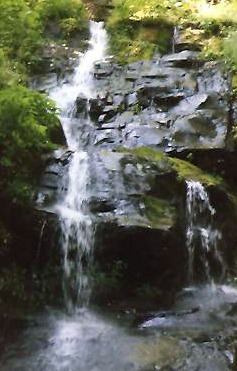Hiking Safety
Hike Smart!

Hiking safety is easily overlooked, but so essential to having a great hike (and staying out of the hospital)!
If someone asked you what's the worst thing that could happen while visiting the Smokies, the first things that would probably come to mind are bear attacks and snake bites. The reality is you're more likely to get in a car accident or drown than even see a bear or snake.
In the history of the Great Smoky Mountains National Park, there has been one death caused by a bear attack and no deaths from snakebites.
The leading cause of death in the park is auto accidents. Another great reason to hike more and drive less:)
The second biggest cause of death is drowning. If you're out hiking and come to a large stream, it's better to turn back than risk getting caught in a freezing cold current. You could always come back during a drier season when the waters are lower.
Climbing a waterfall is another sure way to get seriously injured or even killed. The algae on the rocks make for slippery footing. While it's so tempting to climb to waterfalls, enjoy them from a distance and take a picture instead:)
Staying safe in the Smokies really just boils down to using common sense. It's the most important thing to bring with you. :)
Weather Safety
Even if you start hiking with sunny skies, the weather can always change. When you're hiking in the mountains, there's always a chance for rain. So, anytime you're out hiking, bring a poncho.
Thunderstorms can really dampen a hike. Keep checking the sky as you hike and if you see dark clouds and hear thunder turn back right away.
To find out how far away a storm is, count the seconds between lightning and thunder and divide by 5. That's how many miles away the lightning strike was. If the strike was 1 or 2 miles away, that's bad news. You're in striking distance.
Getting caught in a lightning storm can be deadly, so keep yourself safe by not hiding under a tree. Get as low to the ground as you can without lying down. Also, avoid caves and cliff bases.
Return from Hiking Safety to Hiking Tips